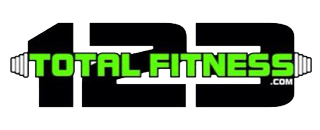The Missing Muscle in High Level Youth Sports.
Today athletes are specializing in sports at younger ages. The time when an athlete could play multi sports up to and through high school seem to be a thing of the past. The focus has shifted to younger athletes spending more time training in one discipline with the thought that more practice, more private lessons, playing on multiple teams and year round training will lead to what most think is the ultimate goal, a college scholarship.
With specializing so young, two big things are happening. First, the percentage of athletes who have a serious injury prior to college has increased significantly. Secondly, we are seeing athletes struggle mentally from the pressures to constantly train like a professional athlete, compete year round with no off season at an elite level and maintain a high level academic workload starting as early as middle school. We are seeing athletes who work their asses off at practice, have all the external training from private coaches to personal trainers, who are on travel teams, academy teams, elite teams and competing at the highest levels in their sport struggle in competition. We see these athletes beating themselves up if a “mistake is made” during competition. We see them crumble under the pressures to perform for coaches, teammates and parents. What we see is talent that is being held back not because they don’t train hard but because they have forgotten to train the most important muscle they have, the Brain.
An athletes Midset will make or break them at any level. The brains main job is to keep you safe. It will only allow you to engage in behaviors and reactions that it knows you have successfully lived through in the past. The importance on creating “safe” behaviors and reactions that an athlete can use to train their brains during practices will set them up to use them when it counts in competition.
Here are three small but powerful areas athletes can focus on now to start training a strong mental platform.
1. Create a pre match routine that you use ALL the time. What you do before practice should be the same as what you do before competition, nothing changes.
2. Create a mistake ritual that you use in practice and competition. Keep it simple - something unique to you and that helps you release what just happened and re-focus on what’s next (example - tap you index finger and thumb together 3 times and have a phase you say after and then move on). Remember that if you don’t use a mistake ritual in practice you won’t use it when you need it in competition.
3. Create a post match routine. Use it for practice and competition. Ask 3 questions for you to review later -
1. What did I do well today?
2. What did I struggle with or need to improve on today?
3. What actions will I take to be better next time?
Don’t over think these answers just write what ever comes to your head at the time, it’s usually the most honest answer.
There is so much more to uncover when it comes the talking about the mindset of an athlete and how they can use it as a “tool” for achieving all their goals but the tools above are a great first step for any athlete at any level. Coaches, parents, trainers and athletes need to understand the power of the brain and the mental side of competition making it just as important as skill reps, practices on the field or court and reps in the gym. They way athletes prepare mentally for a practice will translate how they prepare for competition. They way athletes handle mistakes in practice will translate how they recover from a mistake when it happens in competition. They way athletes talk to themselves has a direct impact on how they recover when things are not going according to plan or how they maintain a high level of competition when it’s going well. Just like learning a new skill, the more athletes practice mindset training the better they get and the easier it becomes to use it in competition.
The forgotten muscle may just be the missing link an athlete needs to break through his/her barriers to reach their ultimate goal.
If you would like learn more about 1:1 Mindset Training and how it can help your athlete please feel free to contact me - pdgiddings@gmail.com
Pam Giddings
High Performance Trainer
Postive Performance Mindset Coach
